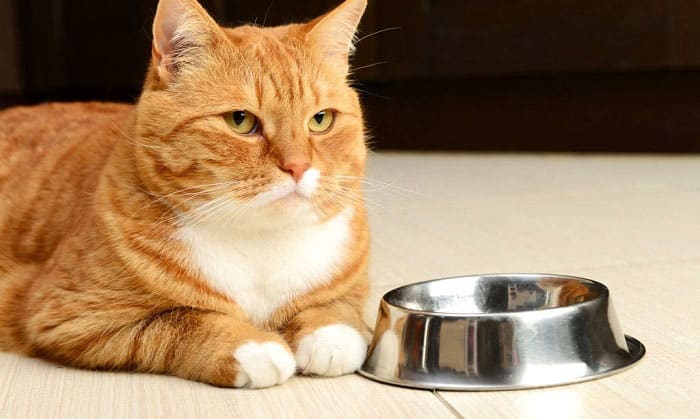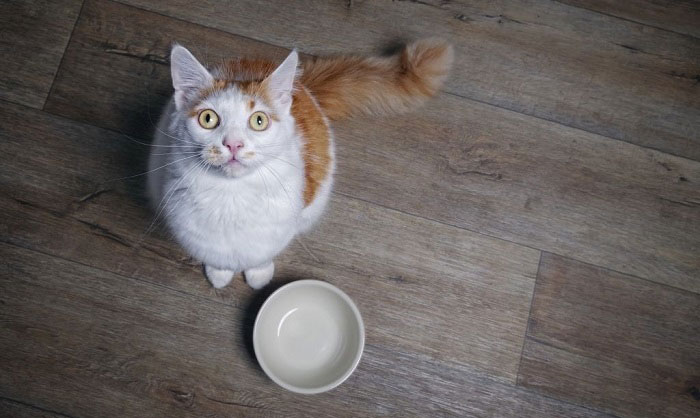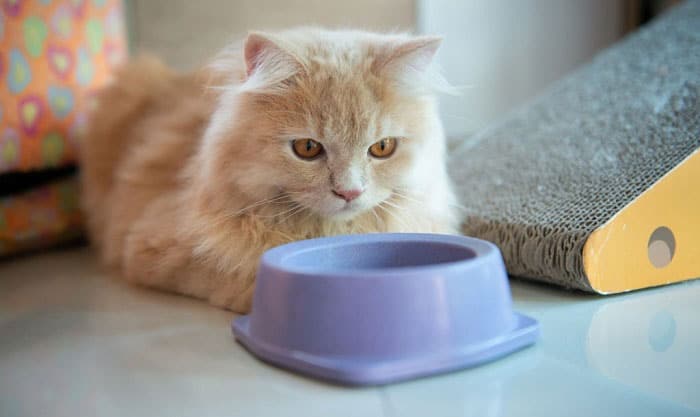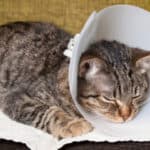How long can cats go without food and water? – A question that worries many new cat owners.
For your information, cats can last without food and water for no more than 3 days. On the other hand, your furry friend can last for almost two weeks without food alone since drinking enough water is vital for cats to remove toxins in their body.
Cats require an adequate nutritional amount of food and water to jump around and be as active as they usually are. If the cat refuses to eat or drink, there might be an underlying cause for them to act out of character. It might be as simple as boredom, or the reason can be worse than what you think; it will need immediate vet care.
Table of Contents
How Long Can a Cat Go without Eating and Drinking
For many reasons, cats might stop eating for a week, and only drink water in a day. In the worst-case scenario, cats could completely stop consuming anything, even their favorite canned wet cat food. Cat live without food for two weeks without food, but they can’t go without water.
Like you who can’t go without a drink, fluids are vital for a cat to eliminate toxins out of its body. Prolonged dehydration is dangerous and can lead to death if not cared for. But it’s not just some fluids that it needs. So, do not let your cat go without water for too long.
One mythical belief is that cats are fond of drinking milk. The older cats get, they are more lactose intolerant. It can cause them gastrointestinal upset if they consume too much milk. Hence, they can’t go on without drinking water. Lack of nutrition in their body can do more harm to them.
Food and water go hand in hand for protection and securing a healthy life for your pet cat.
Understanding how long cats can go without food and water is tricky without the helpful comprehension of the experts who spent almost their entire lives trying to recognize how our beloved cats behave.
There is nothing heartbreaking than seeing your fur kid stressed, sick, or behaving oddly. We love how they can make us smile after a stressful day at work or welcome us with warmth after a long day of school but to achieve that, we have to first be mindful of the hows and whats before taking home a pet cat.
Many cats suffer from different reasons unbeknownst to us at first glance, so the best thing to do is to be watchful and knowledgeable about the cat’s behavioral pattern. We need to create a healthy place to live in before deciding to own a kitten, especially when it comes to their appetite. Their refusal to eat or drink indicates that something is going wrong on your part as a responsible fur parent.
Read more: Indoor cats and tabby cats life expectancy.
What Happens to Your Cats When They Do Not Drink or Eat
Cats are picky
Apart from being obligate carnivores and crepuscular animals, cats are picky by nature. Their body requires a specific diet of protein and fat to keep them going. Based on a study, their food should have a 50:50 ratio of fat and protein.
Fat reserves fuel them and give them enough energy for their athletic jumps and landings, especially whenever they hunt. Falling short of these on their diet can result in malnutrition and dehydration.
You can try tuna or any fish that contains high amounts of protein and fat to which cats are excited about. Your grimalkin can eat protein and oasis from the fountain of drinking water themselves after a long nap or through your assistance.
Another reason your cat won’t eat or drink is getting satiated over the same food. This can cause vomiting and frequent diarrhea, indicating a sensitive stomach. You can ask your trusted veterinarian about what kind of foods are good for your cat.
Or they are stressed and anxious
Unlike other species in the kingdom of Mammalia, cats tend to be more unexpressive when experiencing stress. They are known to be emotional and sensitive. Your feline can go quiet and inactive, satisfied in laying down and looking out the window.
They stopped eating for days if you were not vigilant enough to notice the unexpected disturbances that made them anxious. Moreover, a sudden change in their environments such as the position of their water or food bowls, or a new place, even a new person in the house, may affect their appetite in most cases than what you can imagine.
Also, their eating routine could be affected when their human is suffering from internal conflict. For instance, what can affect their health are breakups, loss of a family member, or anything in particular that can gravely affect your emotional health. Cats can catch what you are feeling without you realizing it.
Your beloved pet can feel the love and affection you have towards them even if they are subtle in expressing theirs. These strong emotions are a big part of them and their instinctive decisions. A simple act of affection like a kiss is sometimes appreciated, but realizing can’t tolerate being near you or just touching.
On the other hand, negative feelings are like how upset, stressed, and miserable you are. These negative emotions affect them big time. The degrees of your stress can alter their water and food consumption, even their simple daily routines.
Due to vaccination or medication
It is common knowledge to make a trip to the vet for shots, as cats need added protection besides food and medicine intake. Vaccination and medication help fight off infections and illnesses that can compromise your tabby’s health.
Furthermore, it assists in the cat’s survival, especially if it is the type that enjoys a long walk outside.
After the vaccination, let your cats rest and regain lost strength because it will only last 24 to 48 hours before your beloved pet goes nibbling again.
In worse cases, when the medication is strong, you might notice they go for 3 days for 4 days without food. That long period without food is not a huge problem, but make sure you make them drink water.
Your cats might be ill
If their conditions are bad to the point that they refuse to eat for days or stop drinking water for a day or two, you should take it to the vet to inspect their health. They might have gastrointestinal issues, constipation, or digestive obstruction. Check if they are ill and give them medication soon for them to get well.
What Should You Do If Your Cats Go Long without Food and Water
So the next time you notice your cat go without food and water for 24 hours, here’s what you can do to help:
- Do not panic. Panicking won’t do any good for both you and our cat. Take a deep breath and look, or better yet, list down your cat’s unusual behavior and try to recognize if it happened before for insight.
- Add liquid food or vet-approved canned cat food to help your feline to recover. Also, ask for helpful tips in terms of your cat’s diet.
- Always give clean drinking water to your cat.
- Dispose of 24 hours old food or water. Bacteria accumulation is faster than you realize. Don’t wait for an upset stomach to discover such an important matter.
- Help boost your cat’s appetite by providing affection and frequent ‘cuddle time’. It is a vital part of owning a pet, especially when in times of need.
- Don’t force them to eat or drink. Pressing them to consume anything is stressful rather than helpful. Be more gentle since your cats are not feeling well.
- Be vigilant. Look for signs instead of trying to be ‘the vet’. And please do not wait until your cat not eating or drinking for 3 days to take it to inspect its health.
- Don’t hesitate to set an appointment with your local vet. A frequent visit or check-up helps to recognize early symptoms or illnesses.
Conclusion
Hopefully, now you get the answer to “How long can cats go without food and water?” you can better take care of your furry buddy without worry. Do not panic when your cat won’t eat or drink for a day, but make sure you check all the signs, from the food and drink quality to your cat’s condition.
If you find our article helpful, feel free to share it with your cat-lover friends!

I am Amy Sawy, a Doctor of Veterinary Medicine (DVM) graduate from the University of Kansas. y husband, Dr. Plummer, and I own a veterinary clinic in Phillipsburg, Kansas. In addition to my professional background, I am a devoted pet owner myself, with a household that includes dogs, rodents, and most notably, cats – a total of five felines in my home.
In 2020, I joined an organization as a professional writer, leveraging my experience and collaborating with my team to deliver the most valuable information for your cat’s care.












